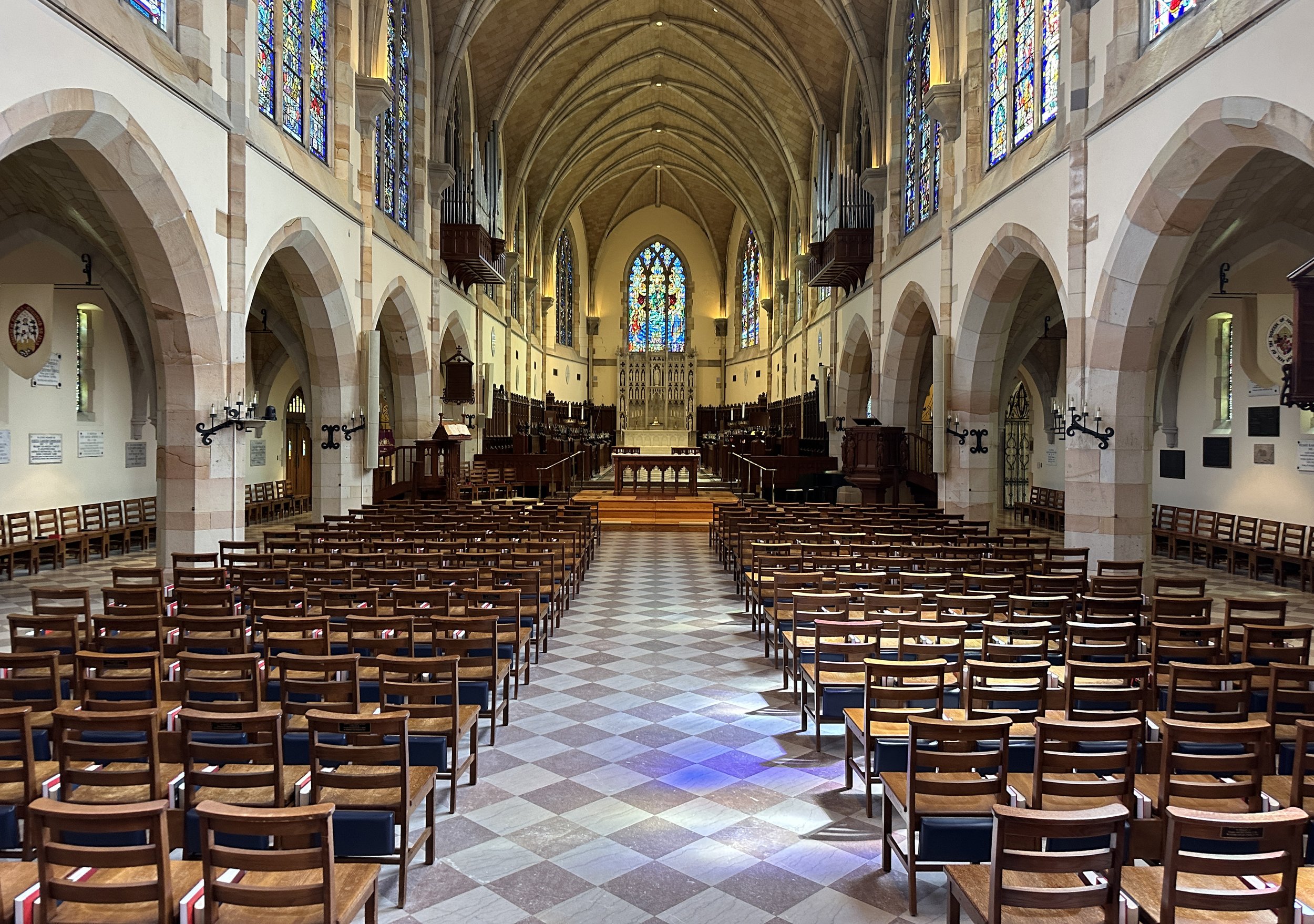
September 27
Euphrosyne/Smaragdus of Alexandria
Monastic, 470
art by Rev. Kirsten Kohr of Geneva, Ohio Merciful God, who looks not with outward eyes but discerns the heart of each: we confess that those whom we love the most are often strangers to us. Give to all parents and children, we pray, the grace to see one another as they truly are and as you have called them to be. All this we ask in the name of Jesus Christ, our only mediator and advocate. Amen.
Euphrosyne was born in the fifth century, the beloved only child of a couple in Alexandria. She had a warm and loving family life, but her mother died when she was still a young girl. Her father, Paphnutius, instructed her in the Christian faith and often used to take her to visit the monasteries outside of the city.
As she grew to adulthood, her father arranged what he thought was an excellent future for her—marriage to a wealthy and handsome young man from a prominent family. But Euphrosyne would have none of it. She and her father quarreled, and she ran away from home in anger without even saying goodbye. She cut her hair, changed her clothing for men’s attire, and adopted the name of Smaragdus.
Smaragdus entered a monastic community outside of Alexandria, where he made great progress in prayer and in wisdom. Many years later, Paphnutius came to that same monastery, seeking consolation in his bereavement over the daughter he had lost, whom he believed to be dead. The abbot of the monastery (perhaps perceiving the situation more clearly than he had ever admitted) sent Paphnutius to Smaragdus for spiritual direction and guidance. Paphnutius was then instructed in the spiritual life by Smaragdus for years, coming weekly to the monastery for his wisdom and advice, but during all that time he failed to recognize his own child.
It was only as Smaragdus was ill and near to death that Paphnutius’ eyes were finally opened, and he recognized that the beloved daughter he had mourned as dead and the monk who had guided him through his grief were in fact the same person. He nursed Smaragdus lovingly during his final illness, and then became a monk himself, occupying the same cell that his child had lived in for the rest of his life.
Excerpted directly from “Lesser Feasts and Fasts 2022,” p. 436-437.

